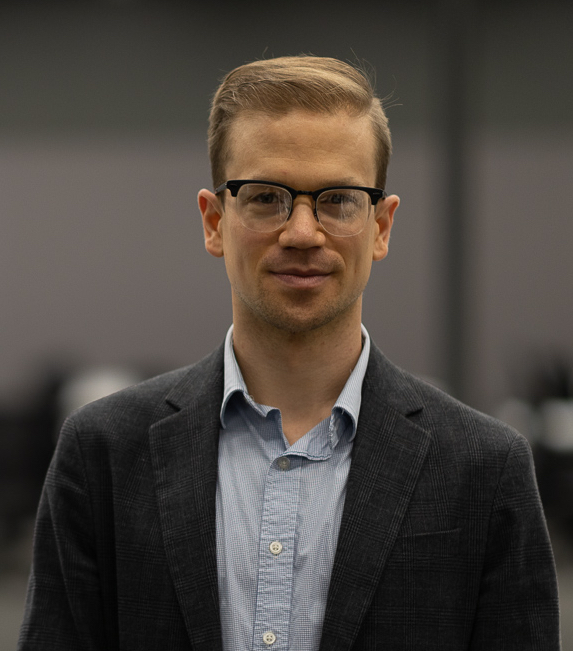Stephen (Nick) Housley, a postdoctoral scholar in the School of Biological Sciences, is the first recipient of an early career award through the Jack and Dana McCallum Neurorehabilitation Program.
Housley, who received his Ph.D. in Applied Physiology at Georgia Tech in 2020, has been awarded a Jack and Dana McCallum Early Career Award for postdoctoral researchers. The goal of the program is to strengthen research in neurorehabilitation and the relationship between Georgia Tech and Emory University. The program supports graduate students and will now also support some postdoctoral scholars through Early Career Awards.
Housley’s research intersects neuroscience and cancer biology. “I am genuinely honored to have my work recognized and acknowledged through [this] support,” Housley says. “The sort of high-reward studies that I pursue are often perceived as risky. Having this support will enable me to pursue ambitious projects and expand on the breadth of studies.”
The new award from alumnus and College of Sciences Advisory Board member Jack McCallum, M.D., Ph.D. (BIO ‘66) is part of a $1 million gift committed in 2022 for the creation of the Jack and Dana McCallum Neurorehabilitation Training Program facilitated by Georgia Tech and in partnership with Emory University and The Shepherd Center’s Crawford Research Institute. This funding will be used over the next two years to support graduate student, postdoctoral and faculty research, as well as train new scientists in neurorehabilitation.
The McCallum Family Foundation has previously provided scholarships to reward outstanding undergraduate students for their academic excellence and performance in Georgia Tech research labs. The McCallum scholarships enable undergraduates to engage in research earlier in their academic careers than many colleges and universities. And scientific research is a defining characteristic of the undergraduate experience in the School of Biological Sciences at Georgia Tech, where young undergraduate researchers are provided access to experienced faculty mentors and research labs with cutting-edge equipment, which are critical to their training as scientists.
About Stephen Housley
Stephen (Nick) Housley is a clinician-scientist focused on cancer neurobiology with specialty training in treating neurological disorders. Housley is also a fellow in both the Sensorimotor Integration Lab and the Integrated Cancer Research Center at Georgia Tech.
Housley’s research centers on how the nervous system, cancer, and its treatment interact in mammalian systems. “My research interests rest on my recent discoveries that securely establish the existence of reciprocal interactions between cancer, cancer treatment and the nervous system,” he explains. “In addition, my other area of study centers on how the nervous and musculoskeletal systems interact to encode sensorimotor information, and how integration in the mammalian spinal cord results in physiologically relevant movement.”
As part of his research into cancer neurobiology, Housley is also developing therapeutic nanohydrogels: microscopic polymer-based particles that may serve as next-generation drug delivery vehicles. “I have been exploring the use of my nanohydrogel platform to deliver therapeutic payloads to solid tumor cancers,” he says.
Housley wishes to thank M.G. Finn, who serves as professor and chair of the School of Chemistry and Biochemistry at Georgia Tech and James A. Carlos Family Chair for Pediatric Technology, for Finn’s mentorship and support of nanohydrogel research. Housley also thanks Timothy Cope and John McDonald, both professors in the School of Biological Sciences, “who provided the intellectual and practical environments focused on neuroscience and cancer biology. Their support enabled me to pursue a new research field at the intersection of both — namely, cancer neurobiology,” Housley adds.
For More Information Contact
Writer: Renay San Miguel
Communications Officer II/Science Writer
College of Sciences
404-894-5209
Editor: Jess Hunt-Ralston



